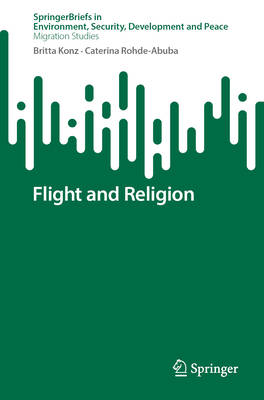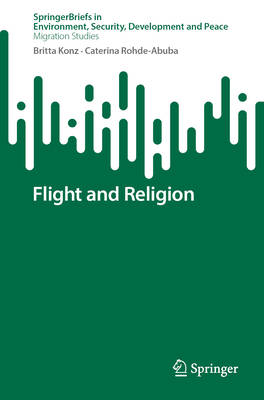
- Retrait gratuit dans votre magasin Club
- 7.000.000 titres dans notre catalogue
- Payer en toute sécurité
- Toujours un magasin près de chez vous
- Retrait gratuit dans votre magasin Club
- 7.000.0000 titres dans notre catalogue
- Payer en toute sécurité
- Toujours un magasin près de chez vous
Flight and Religion
Britta Konz, Caterina Rohde-AbubaDescription
This book is based on an interdisciplinary, qualitative-empirical study of Muslim, Christian, and Yazidi families. It explores the significance of religion in coping with traumatic experiences during flight and migration processes. Using the concept of VulnerAbility, the book illustrates how children and their parents generate agency through their faith and their sense of belonging to a religious community. Through individual efforts at adaptation, they meaningfully adjust their religious heritage - reflected in their images of God and religious relevance systems - to new life contexts. This enables them to develop positive visions of the future by drawing on their faith, even though religious affiliation has often been a source of social conflict, reinforced by discriminatory practices in their countries of origin, along migration routes, and within the German asylum system.
Spécifications
Parties prenantes
- Auteur(s) :
- Editeur:
Contenu
- Nombre de pages :
- 151
- Langue:
- Anglais
- Collection :
Caractéristiques
- EAN:
- 9783032038913
- Date de parution :
- 28-10-25
- Format:
- Livre broché
- Format numérique:
- Trade paperback (VS)
- Dimensions :
- 155 mm x 235 mm

Les avis
Nous publions uniquement les avis qui respectent les conditions requises. Consultez nos conditions pour les avis.






